In a groundbreaking achievement, ORT Braude College has secured an EU Erasmus+ grant to develop Augmented Reality (AR) skills and integrate them into project management teamwork. As part of this initiative, 16 faculty members embarked on an extraordinary week-long training in Athens, Greece, led by Matterport, a leading European AR technology firm.
This milestone marks the first time an Israeli technical college has joined an EU capacity-building project, paving the way for a transformative educational leap. Collaborating with Matterport, ORT Braude brings cutting-edge AR software into its classrooms, promising a dynamic fusion of education and technology.
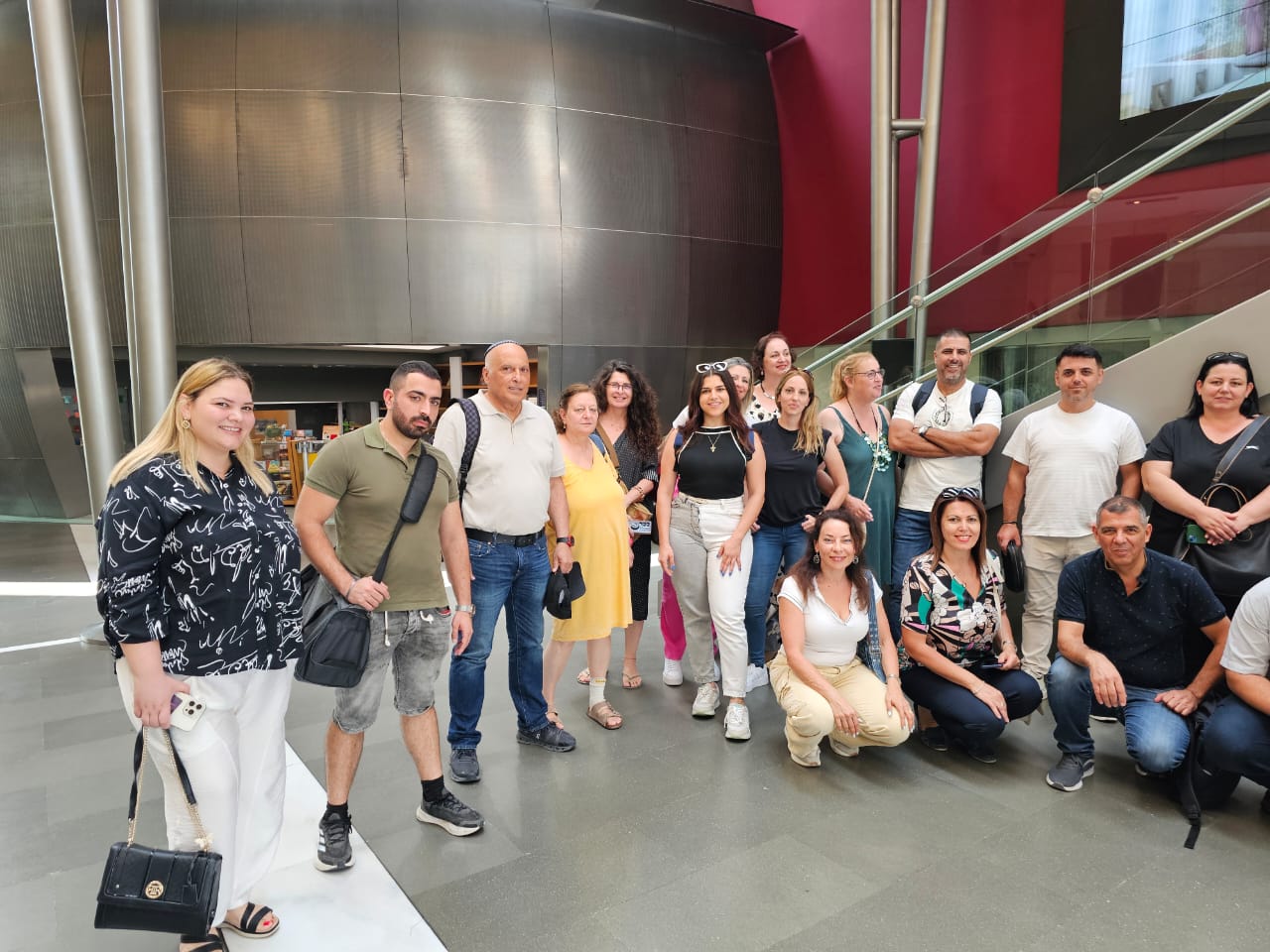
A Bold Vision for Change
To ensure widespread adoption, ORT Braude took an inclusive approach, selecting faculty from various departments. The goal? Establish a unified framework and implement AR across courses and final projects in all departments by the next academic year. The initiative also seeks to foster interdepartmental collaborations, enriching the college’s educational ecosystem.

Leadership Roles
Beyond mastering AR, ORT Braude assumed key leadership responsibilities:
- Teamwork Training for participants from Greece and Albania.
- Quality Management of the entire project.
- Strategic Dissemination Plan to maximize the project’s impact.
The proposal earned high praise from the EU for its innovative blend of teamwork and technology, addressing critical future workforce needs and its potential for widespread impact.
Diverse Delegation, Unified Purpose
In late July, ORT Braude’s 16-member delegation—comprising faculty from Mechanical, Civil, Electrical, and Software Engineering; Architecture; MedTech; Industrial Management; and Biotechnology—headed to Athens. Representing Israel’s rich diversity, the group included men and women of various ages, religions, and backgrounds, united in their mission.
AR Technology: A Game-Changer
The team gained expertise in AR tools capable of 3D scanning spaces, producing highly detailed interactive models. These models facilitate in-depth environmental analysis, identifying weaknesses, optimizing workspace layouts, conducting safety and equipment training, and even replacing industrial site visits. With VR glasses, users can virtually explore scanned environments, opening endless educational possibilities.
“Everything can be tagged,” said Grace Hazan, Head of Civil Engineering. “Columns, hidden beams, ribbed ceilings—it’s perfect for educational tours.” Maya Fox, an Architecture lecturer, envisions a new specialization in building preservation inspired by the technology.
Teamwork in Action
During the training, faculty formed specialized teams to tackle different aspects of the project. These included recommending equipment procurement, piloting AR with students, and planning a future hackathon. The hosting Greek college was particularly impressed by the Israeli team’s efficient, collaborative approach, eager to implement similar strategies.
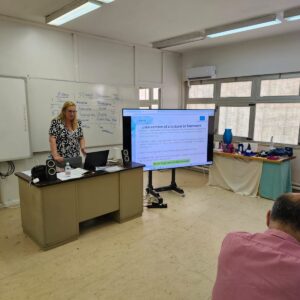
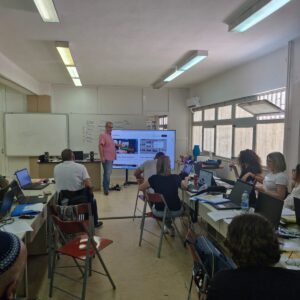
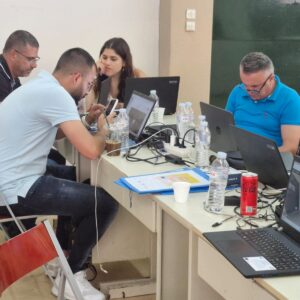
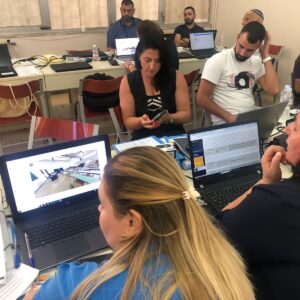
AR in Practice
Kusai Ali, a dynamic MedTech lecturer, has already partnered with a local hospital to map future workspaces for his students. Dr. Shadi Askala, Head of the Software Department, reflected, “This was an incredible deep dive into AR. I’m leaving with the feeling that anything is possible.”
Beyond the Classroom
The delegation also embraced Athens’ rich culture, exploring its history, beaches, cuisine, and shopping. The week concluded with participants receiving official certification from Matterport, equipped to bring AR into their classrooms and beyond.
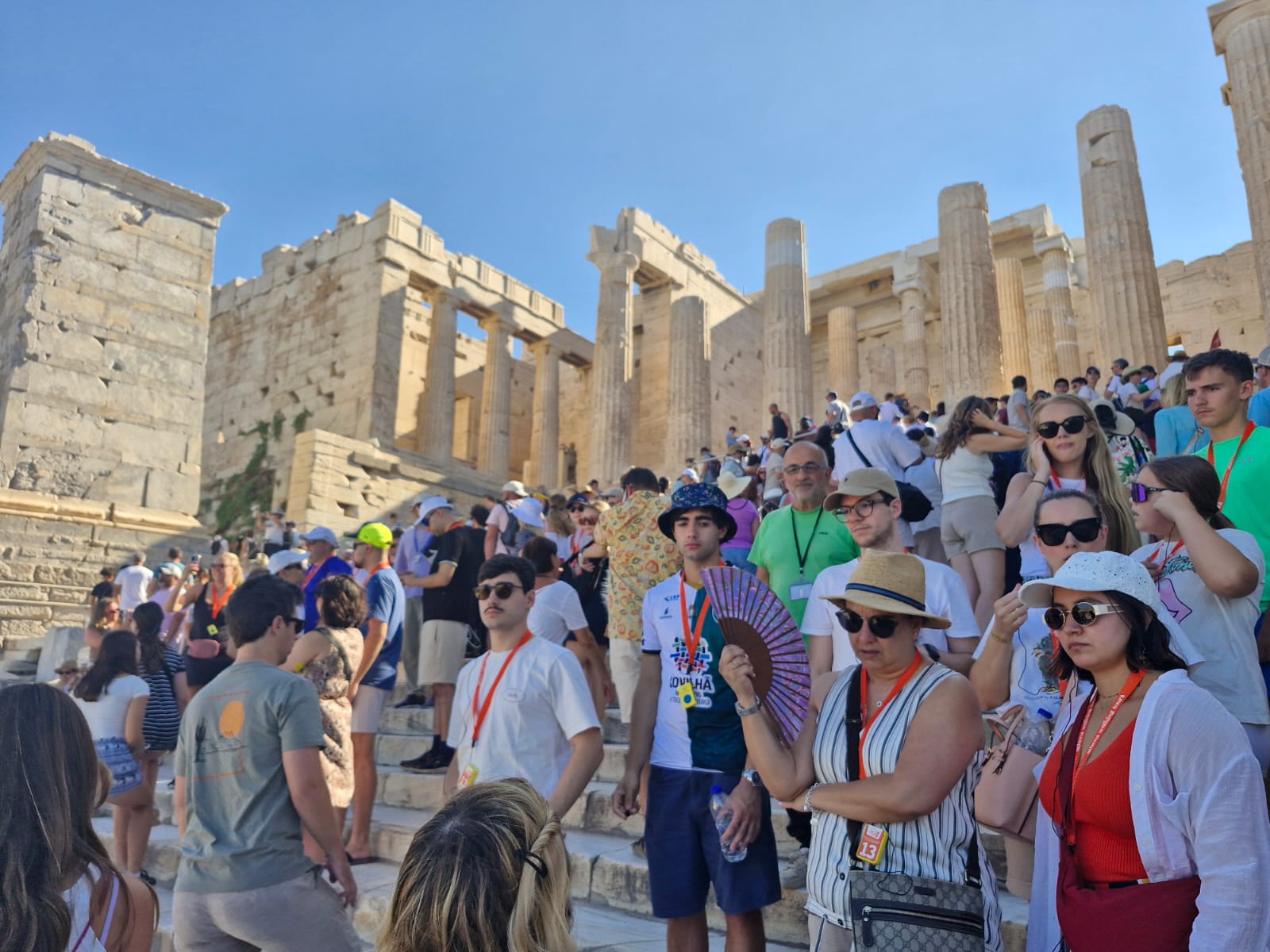
As ORT Braude celebrates this successful first phase, preparations are already underway to integrate AR into the curriculum.
Author: Sharon Tidhar, Erasmus+ Project Manager & ORT Braude Staff Member.